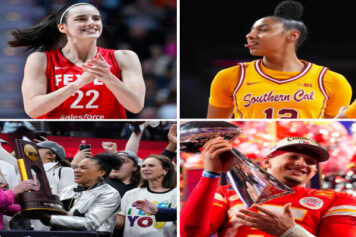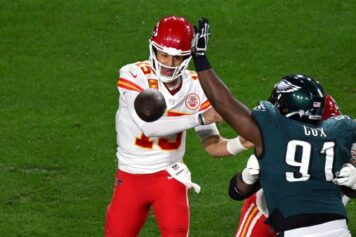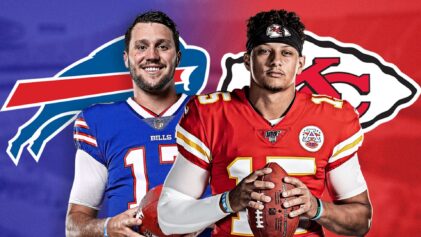As Black MLB pitchers become endangered species, the 2019 MLB Hall of Fame class holds great significance for the African-American baseball community.
The long-overdue induction of Lee Arthur Smith — one of the most dominant relievers in the history of the game — rights a wrong perpetrated upon Smith by the Baseball Writers Association of America and also sheds a light on how Black pitchers of Smith’s stature have become as rare as a 1972 Lincoln penny.
Smith accumulated 478 saves over an 18-year career and retired in 1997 with more saves than anyone in history. He’s now third-place all-time behind fellow shutdown closer and 2019 HOF inductee Mariano Rivera and Trevor Hoffman.
While Hispanic pitchers have become commonplace in MLB, the African-American pitcher is almost non existent, which makes Smith’s induction historical, noteworthy and inspirational, particularly for the 120 African-American kids ages 13-15 that ascended upon Historic Dodgertown in Vero Beach this week to participate in MLB’s Hank Aaron Invitational as part of pro baseball’s diversity initiative programs.
MLB’s Hank Aaron Invitational (formerly known as Elite Development Invitational) has been a driving force in baseball’s organizational push to help increase the participation of African-Americans in the sport and provide talented kids of color from across the country opportunities to be coached and developed at the highest levels.
The programs cover prohibitive costs, equipment, resources, facilities and elite coaching for kids, many who are from underserved neighborhoods.
The Hank Aaron Invitational currently has more than 100 alumni either playing professionally in Club Minor League systems or on the collegiate level. This equates to more than half of the participants who graduated high school in 2017 or 2018.
With Black baseball prospects being shifted from the pitching mounds, infields, and backstops into the outfield, ace pitchers like Smith are celebrated and revered by the aspiring pitchers in attendance at the Invitational and the African-American instructors who share their MLB experience, hoping to mold the next generation of superstars and keep the legacies of underappreciated players of color alive.
Tom “Flash” Gordon is one of the last great African-American closers. Gordon spent the first decade of his 21-year MLB career as a starter (1988-98) before blossoming into one of the game’s dominant relievers.
Gordon says he was directly inspired by Smith, the Jheri curl-rocking, heat-tossing, 6-foot-5 intimidating closer for 8 different MLB teams.
“Smith was not only a phenomenal baseball player but a great man,” Gordon told The Shadow League at the Hank Aaron Invitational at Historic Dodgertown in Vero Beach, Fla. “He inspired me a lot because he always found ways to come by, give me information and talk about my thought process in the game and what he can do to help me as a young African-American player in the game… and it gave me inspiration and helped me realize that somebody already paved the way…not only with the Negro Leagues… and now I get to be on the same field with Lee Smith and the superstars that I watched as a kid.”
“When I got to the Big Leagues and he came over and introduced himself to me, it made me feel like I was a part of something special in the game and that’s what he always brought.”
Tom Flash Gordon and Del Matthews speaking strategy and daily approach for #edibaseball @MLBDevelops pic.twitter.com/OlEbCWf7bX
— LA MAQUINA DE SOMBRAS (@FANalyst1) July 30, 2018
Gordon recalled how Lee would always have something funny to say to him during Spring Training, which made him relax.
“Not only was I here with the heroes that inspired me to pitch growing up but they genuinely cared about me as man and wanted to see me play well,” Gordon insisted.
Listening to Gordon sing Smith’s praises is further proof that Smith was not only a great baseball player but an incredible person. That was a recurring theme as I interviewed the various former players who either played with Smith, against Smith or were inspired by his encouraging words and elite performance.
Availability, productivity, consistency, and tenacity defined Lee’s career.
“He brought these attributes to the game,” Gordon continued, “and he was a big gentle giant and also one of the big sexy’s in the game. He was a star and I loved the idea that he’s now in the Hall of Fame, but to me, Lee Smith was a Hall of Famer from the day I met him.”
“He did something that I got an opportunity to do later in my career and closed games. In the beginning, I didn’t really understand how that works, but I watched him and soon realized that was one hard job to handle and everyone can’t do it. However, Lee was able to do it and do it well for a long time,” Gordon marveled. “Such an inspiration.”
Marvin Freeman had a 10-year career as an MLB pitcher from 1986-1996 with the Atlanta Braves, Philadelphia Phillies, Colorado Rockies, and Chicago White Sox. Like Gordon, Freeman spends his summers sharing his expertise and experience as an MLB pitcher with the kids participating in the Hank Aaron Invitational. He told me that Smith’s induction is long overdue.
“He was the all-time saves leader when he retired and they were putting guys in the Hall of Fame before him that were relievers.” Freeman griped. “He was one of the first workhorse closers to pitch two, three-inning saves on a regular basis.”
Smith spent the first eight years of his career pitching in Chicago for the Cubs and Freeman became enthralled with Smith as a local kid with MLB dreams.
“I know Lee. I looked up to Lee Smith,” Freeman told The Shadow League. “I remember as a young kid growing up in Chicago, I would come home from school at 3:15… it was like the sixth or seventh inning and I couldn’t wait to see Lee take that slow walk in from the bullpen and shove it down somebody’s throat. He directly inspired me to want to be a big leaguer.”
“When I got a chance to meet him, he was like my uncle. So having a chance to actually sit down, talk and have a conversation and get to know him as a man, not just a baseball player was incredible.”
Before Patrick Mahomes Sr. gave birth to his 2018 NFL MVP quarterback son, he was an MLB pitcher for 11 years from 1992-2003.
“ I met Lee Smith when I was young,” Mahomes, an instructor at the Hank Aaron Invitational told The Shadow League. “He was a role model I looked up to. He was pitching out of the pen with Baltimore at the time and he was a positive guy, never hesitant to share his knowledge of pitching with young players and he definitely deserves to be in the Hall of Fame.”
Beyond the stats, Mahomes says that Lee’s attitude towards the game is what truly made him great.
“Always being positive, he had a lot of confidence in himself and was just a big guy that was overpowering and ahead of the game,” Mahomes said.
Tony Reagins is the fourth African-American general manager in the history of MLB, serving in that capacity with the Los Angeles Angels from 2007-2011. Now he dedicates his energies to running baseball’s diversity initiatives, locating and developing African-American talent through his role as MLB’s Executive Vice President of Baseball & Softball Development.
Smith has attended Reagin’s diversity camps and lent his expertise to aspiring players over the past few seasons. The two have developed a close relationship and Reagins is as qualified as anyone to speak to Lee’s importance to baseball’s past and future and the quality of his character as a man.
“I had the pleasure of working with Lee at the various diversity camps and also when I was with the Angles,” Reagins told The Shadow League. “A lot of his off the field heroics are not publicized, but he would bring the kids to the Angles, kids that were underserved and I remember back when I was still working there, we brought about 60 kids to the ballpark and he’d say to me, “Hey Tony, go in my billfold and get them 100s and make sure all these kids get something to eat.”
“That’s the kind of heart he has so I have a lot of respect for his journey and commitment and his ability to stay relevant for so long. Closing out ball games is probably one of the toughest jobs to have. Getting the 27th out is a tough job and he did it a lot, so out of all the guys inducted into the 2019 Hall of fame I probably had the closest relationship with Lee.”
Former MLB All-Star Eric Davis is a recent inductee into the NLBM Hall of Game and one of the greatest five-tool players the sport has ever seen. He was teammates with Smith.
“I had a chance to play with Lee Smith in 1996 when I came back to Cincinnati after beating cancer,” Davis said. “What made him special was his mindset. It was like you can’t beat me and he wasn’t afraid…let’s dance. That gave him that edge and everybody needs an edge. Whether the results are edgy or not it’s the thought process that’s going to breed success and he never deviated from his thought process.”
As MLB changes and baseball begins to lose some of the swag and excitement that African-American players have traditionally provided, especially from the pitcher’s position, icons like Lee Smith and their stories will figure more prominently.
Baseball’s African-American alumni will continue to preserve the legacy of forgotten stars such as Smith, who was finally recognized by the Veteran’s Committee at January’s winter meetings after unfathomably being jerked by baseball Hall of Fame writers for the past 15 years.
The first-hand accounts expressed by his contemporaries, mentees as well as players and executives that he touched and inspired give us a total picture of Smith’s impact on the game, his value as a man and the extent of his undeniable greatness.



